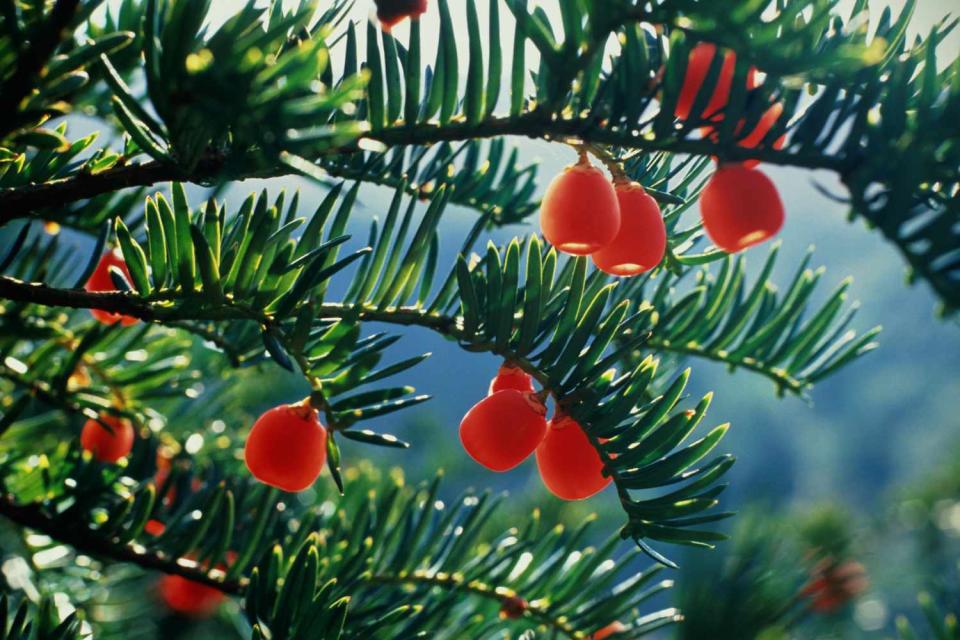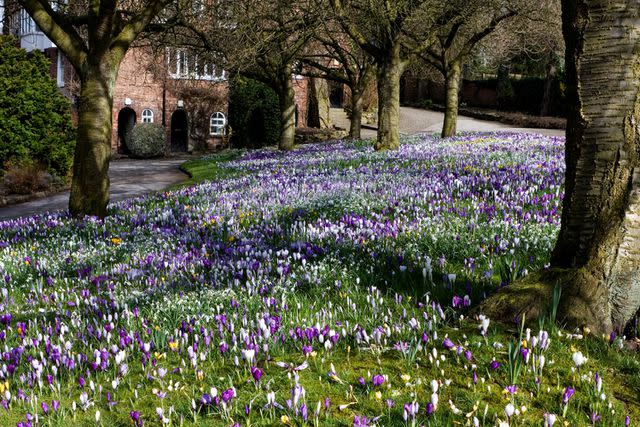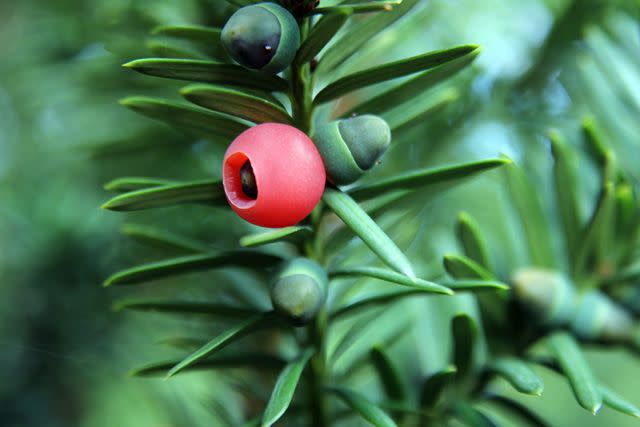14-Year-Old Boy Dies After Eating Poisonous Berries During a Walk in the Park With His Dad
The teen died after ingesting yew tree berries during a walk with his father

Getty
Yew tree berriesA 14-year-old boy has died after eating poisonous berries during a walk in the park, a UK inquest into his death has heard.
According to the official report, Benn Curran-Nicholls, 14, who had “severe autism with intellectual impairment," would routinely take morning walks through a local park for exercise.
On the morning of Sept. 18, 2022, Curran-Nicholls was with his father walking through Fletcher Moss Park in Manchester when he stopped at a yew tree he frequently liked to climb.
While there, the teen reportedly ate some yew tree berries and leaves, as neither he nor his father knew they were poisonous.
Later in the day, Benn collapsed and was rushed via ambulance to Royal Manchester Children’s Hospital where he died the following morning of “refractory cardiogenic shock due to taxane alkaloid poisoning” from ingesting the berries and leaves.

Getty
Fletcher Moss Gardens, Didsbury, Manchester, UKRelated: Teen Had Half Her Brain Removed as a Baby — Now She’s Living a ‘Glass Half-Full Life’ (Exclusive)
The inquest’s report states that although yew tree poisonings are rare, “a number of cases” had been reported. Additionally, “no consideration had been given” to putting notices warning of the poisonous nature of the yew tree either at the entrances to Fletcher Moss Park or around the trees themselves.
Following the tragic death, the UK Health Security Agency (UKHSA) justified its decision not to release any public health alerts about the poisonous berries, arguing that it would do “more harm than good.”
“We agreed at present that there was probably a risk of doing more harm than good from any comms put out,” the agency said in a statement. “We would be very concerned about unintended consequences from comms messages, e.g. highlighting the risk of harm which may in turn provide a source for people to self-harm as a potential route for suicide.”
“We aren’t aware of yew tree poisoning being a frequent problem but if this becomes apparent, we will certainly revisit the communications,” the UKHSA added.

Getty
Yew tree berriesNever miss a story — sign up for PEOPLE's free daily newsletter to stay up-to-date on the best of what PEOPLE has to offer, from celebrity news to compelling human interest stories.
Andrew Bridgman, assistant coroner for Manchester City Council, criticized the agency for not informing the public of the dangers of yew trees, calling the decision “illogical.”
“Berries and the like might be attractive to young children who would not recognise the dangers and risks, of even illness let alone death. The poisonous nature of the yew tree is not, on the evidence, well known to the public,” Bridgman said in the report. “The decision appears to be focused on comms solely about the yew tree and the risks of identifying an additional means of deliberate ingestion for suicide. No consideration was given to highlighting the risks of eating wild berries and/or leaves in more general terms.”
The inquest was told that the Manchester City Council is currently carrying out a risk assessment of the yew trees in its parks, including the dangers posed by climbing.
For more People news, make sure to sign up for our newsletter!
Read the original article on People.


